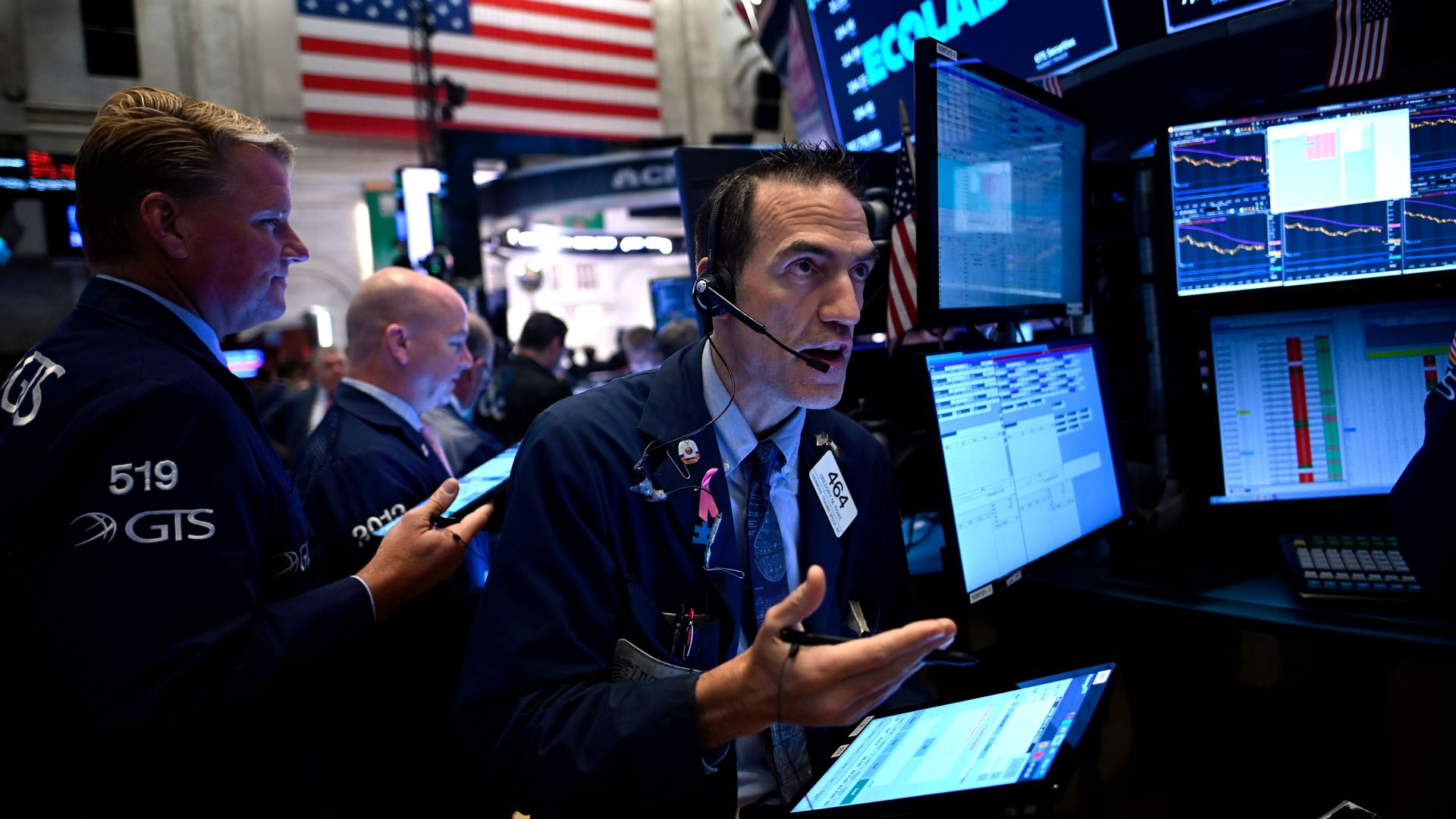Oct 14, 2019 - Economy
Study: Market has measurable influence on shareholders’ votes
Add Axios as your preferred source to
see more of our stories on Google.

Traders work during the opening bell at the New York Stock Exchange this month. Photo: Johannes Eisele/AFP via Getty Images
